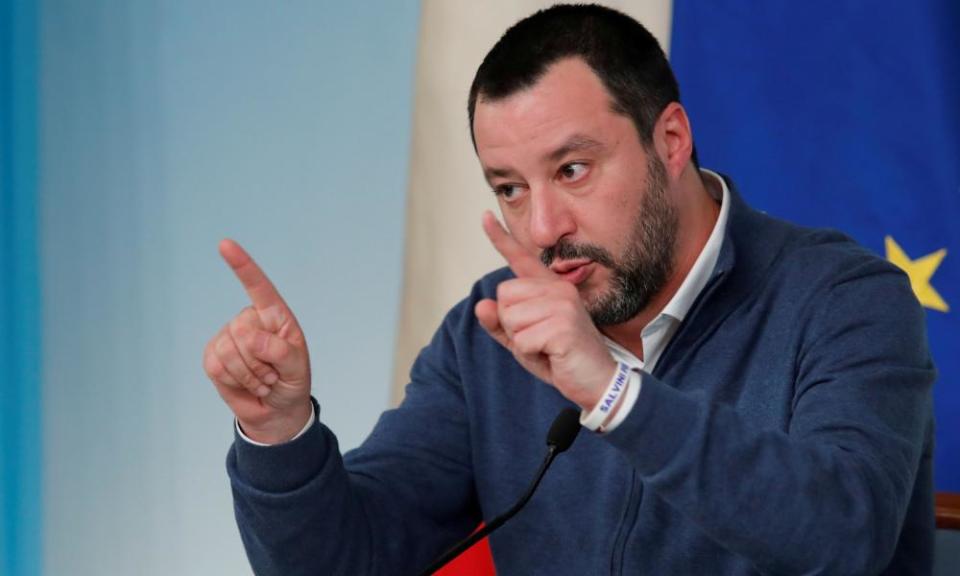Italian MPs demand answers over claims Salvini's League sought Kremlin funding

Italian opposition politicians have demanded an urgent explanation from the government after allegations surfaced accusing Matteo Salvini’s far-right League party of links to the Kremlin.
According to claims made in L’Espresso magazine, an arrangement was struck to sell 3m tonnes of diesel fuel to an Italian oil company by Russian representatives close to the government of Vladmir Putin, diverting profits to the League.
The claims, based on a forthcoming book, The Black Book of the League, by two of the magazine’s journalists, raises questions about the relationship between the Kremlin and the anti-immigrant party, which is in a coalition government with the anti-establishment Five Star Movement.
A group of opposition senators described the claims as worrying. “Russia is financing the League? The worrying report by L’Espresso needs to be immediately clarified by the government,” the centre-left Democratic Party said in a statement.
“It is claimed that a Russian energy company sold supplies of petrol to an Italian firm with the objective of financing Salvini’s Europe campaign. This is not the first time that the League has been involved in embarrassing relations regarding its special rapport with Putin.”
Laura Boldrini, a former parliamentary speaker and a member of a small opposition party, LeU, wrote on Twitter: “Russian finances for the League’s electoral campaign? – Salvini must clarify this immediately because if it is confirmed, it would be really concerning.”
The authors admit they have no evidence that the deal was ever executed, but claim it was being negotiated at a meeting at a Moscow hotel last October.
They claim the meeting was on the same day Salvini was in Moscow for an Italian business convention, during which he slammed EU sanctions against Russia as “economic, social and cultural madness”. They allege that the gathering took place hours after Salvini met Dmitry Kozak, the Russian deputy prime minister who is responsible for energy policy.
The League has been developing ties with Russia since 2013. Salvini has long admired Putin, posting a photograph on social media of their first encounter in 2014. In 2017, the League signed a co-operation agreement with the ruling United Russia party.
Last June, Salvini reacted angrily to a suggestion by billionaire financier George Soros that the League was receiving money from the Kremlin. “I have never received a lira, a euro or a rouble from Russia,” Salvini said.
Massimiliano Panarari, a politics professor at Luiss university in Rome, said that while the League was very careful when it came to the party’s finances, there was a clear “common vision and tactical convergence” with the Kremlin. “Their interests are the same: national sovereignty and attacking the EU,” Panarari said.
A spokesperson for Salvini said: “We are not commenting on fantasies”.

 Yahoo News
Yahoo News 